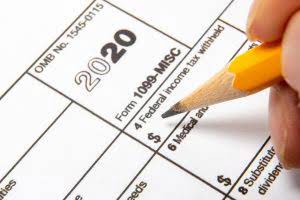
With this, we have closely understood the importance of management accounting for the managers as well as the business. The accountants can then use this obtained information to fill the gaps and improve overall efficiency related to production and sales procedures. This report also empowers the management to look up policies that are more robust and facilitate an uninterrupted cash flow, which is extremely crucial to an organization. Knowing where the cash will come from to carry out a hiccup-free business is undeniably an advantage.
It covers topics in managerial accounting, cost volume analysis, cost allocation, and more. Managerial accounting also involves reviewing the trendline for certain expenses and investigating unusual variances or deviations. It is important to review this information regularly because expenses that vary considerably from what is typically expected are commonly questioned during external financial audits. This field of accounting also utilizes previous period information to calculate and project future financial information. This may include the use of historical pricing, sales volumes, geographical locations, customer tendencies, or financial information. This management accounting example appears easy to apply but in reality, it is a challenge because companies produce many different parts and products.
Management Information System
Measuring and tracking performance using managerial accounting can help executive management make decisions in real-time. Measuring performance against the forecasts and budgets helps to avoid costly overruns and allows a company to remain competitive. The cost accounting system provides the necessary tools such as standard costing, budgetary control, inventory control, marginal costing, etc. for carrying out such functions efficiently. It helps the management to perform all its functions, including planning, organizing, staffing, direction, and control. In other words, the field of accounting that provides economic and financial information for managers and other internal users is called management accounting. It plays an important part in increasing a company’s profitability, and it encourages organisations to be cost-conscious and helps them avoid unnecessary expenses.
Use – Managers use the accounting data to track budgets, analyse profit drivers, control costs, drive efficiency, identify investment opportunities and maintain stakeholder confidence. These insights help managers at all levels to make more informed decisions. While statutory accounts are legally required for tax and regulation management accounting purposes, management accounts are internal financial statements required for effective business operations. From forecasting cash flow to helping you make informed decisions about the future of your business, management accounting is one of the most useful tools business owners and accounting managers can use.
Management Accounting Aids in Planning and Formulation of Future Policies
Managerial accounting, in contrast, uses pro forma measures that describe and measure the financial information tracked internally by corporate managers. Appropriately managing accounts receivable (AR) can have positive effects on a company’s bottom line. An accounts receivable aging report categorizes AR invoices by the length of time they have been outstanding. For example, an AR aging report may list all outstanding receivables less than 30 days, 30 to 60 days, 60 to 90 days, and 90+ days. However, if there is no spare capacity, relevant costs also include opportunity costs. For example, the lost margin of another product that can not be fully produced anymore because of the new product.

